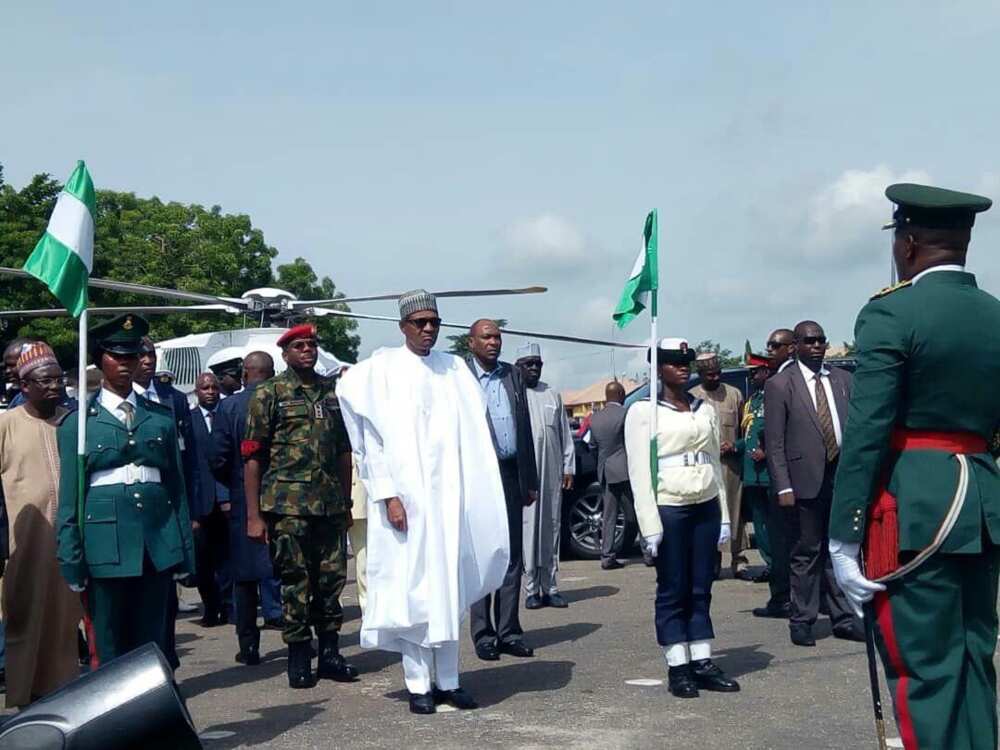President Muhammadu Buhari on Saturday, May 25, commissioned some projects in Ogun during a visit to the state.
Some of the projects commissioned by the president include the Judicial Complex, along Kobape road, Amphi-Theatre in the City Centre and the renovated old Governor’s Office at Oke-Ilewo.
Others are the 250 bedded ultramodern hospital at Oke-Mosan, Wasinmi International Airport in Ewekoro Local Government and the Ogun State Television Digital studio along Ajebo road.
Legit.ng had earlier reported that security was beefed up in the state capital ahead of the president's visit today, Saturday, May 25.
According to Daily Trust, security agents have manned strategic places, particularly Kobape, Oke-Mosan, Kuto and Oke-Ilewo where most of the projects are sited.

Buhari arrives Ogun to commission projects. Credit: Daily Trust
Source: Twitter
READ ALSO: Zamfara election: APC reacts to Supreme Court judgement
The state government had earlier announced the cancellation of environmental sanitation exercise for the month of May slated for today.
A release, signed by the state commissioner for environment, Bolaji Oyeleye, said the cancellation was due to the scheduled visit of the president for commissioning of some “legacy projects” across the state.
Oyeleye enjoined all residents of the state to come out en masse to welcome President Buhari.
NAIJ.com (naija.ng) -> Legit.ng: Same great journalism, upgraded for better service!
Nigerians set 2nd term agenda for President Buhari | Legit TV
Source: Legit.ng
from Nigeria News Today & Breaking Naija News 24/7 | LEGIT.NG http://bit.ly/2JHqRjN
via EDUPEDIA24/7
Comments
Post a Comment